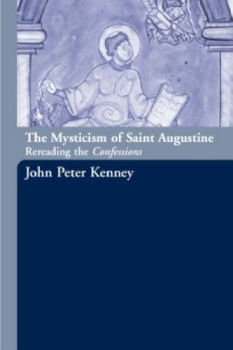
|
Posted October 6, 2005
Book: The Mysticism of Saint Augustine: Rereading the Confessions Author: John Peter Kenney Routledge, New York, pp. 160 An Excerpt from the Introduction:
An Excerpt from the Book: On a fine day in April 1336, Petrarch, the Italian Humanist, set out to climb Mount Ventoux in Provence. Having reached its summit, he produced his vade mecum, a pocket copy of the Confessions, to help interpret this experience of natural beauty surrounding him. In imitation of Augustine in the garden at Milan, he opened the “small but charming” volume at random and read the first words that came to his eyes. As it happened, he hit upon this passage from X.viii (15): People are moved to wonder by mountain peaks, by vast waves of the sea, by broad waterfalls on rivers, by the all-embracing extent of the ocean, by the revolutions of the stars. But in themselves they are uninterested. He immediately concluded that attention to the beauty of nature is misplaced and that nothing is really worthy in comparison with the soul. And so he resolved to attend to the inner self, and no longer to neglect the natural nobility of the soul. The Confessions has long been a template of spiritual experience in the Latin West. Above all it has been an archetype for the inward journey of the soul to God. As the Christian tradition developed, Augustine’s theology of contemplation became authoritative in the Catholic articulation of the relation between the soul and God. But by the late medieval period the via antiqua of Augustine, with its realist metaphysics and foundationalist epistemology, had fallen from favor, superseded by the philosophy of St. Thomas and by the via moderna of the Nominalists. This left the notion of contemplation free standing, as it were, cut off form its earlier philosophical foundations. Yet personal visions of the transcendent became ever more important especially in early modern Catholicism, even if they no longer had the same epistemic valence. The searing vision of Blaise Pascal on the night of November 23, 1654 is a good example. He recorded a confidential testament describing an immediate encounter with The God of Abraham, Isaac, and David. There he states that his soul came into direct and indubitable contact with God. But Pascal was no realist in his metaphysics, so that his ascension narrative is not an account based on knowledge of the larger structure of transcendent reality, as in Augustine, but only a personal proof that offers warrants for his own belief in the God of scripture and tradition. We are well on the way to modern episodic notion of mystical experience. In the nineteenth and twentieth centuries, as the notion of mystical experience became part of the religious vernacular, earlier theological accounts of contemplation were secularized in ways that are well-exhibited in the theory of William James. Mystical experience became an unusual but nonetheless highly prized phenomenon, conferring upon its subject the sensation of transcendence and the feeling of certainty. While superficially this concepton seems close to the ascension narratives of he Confessions, it had – as we have seen – drifted far from their theological significance and intent. . . . The paradox of contemplation to Augustine was that such dramatic episodes occurred only for some people and only as an initiation to the transcendent realm and to God’s presence. But they were not a necessary prerequisite for what really mattered, which was bringing the soul into a permanent association with God. Table of Contents: Part I Flight to the alone 1. The root of the soul 2. A long life stretched out 3. A kind of rest Part II Vision at Ostia 4. Books of the Platonists 5. A trembling glance 6. The presence of truth Part III 7. A home of bliss 8. Total concentration of the heart 9. Snatched up to Paradise Conclusion |
|
